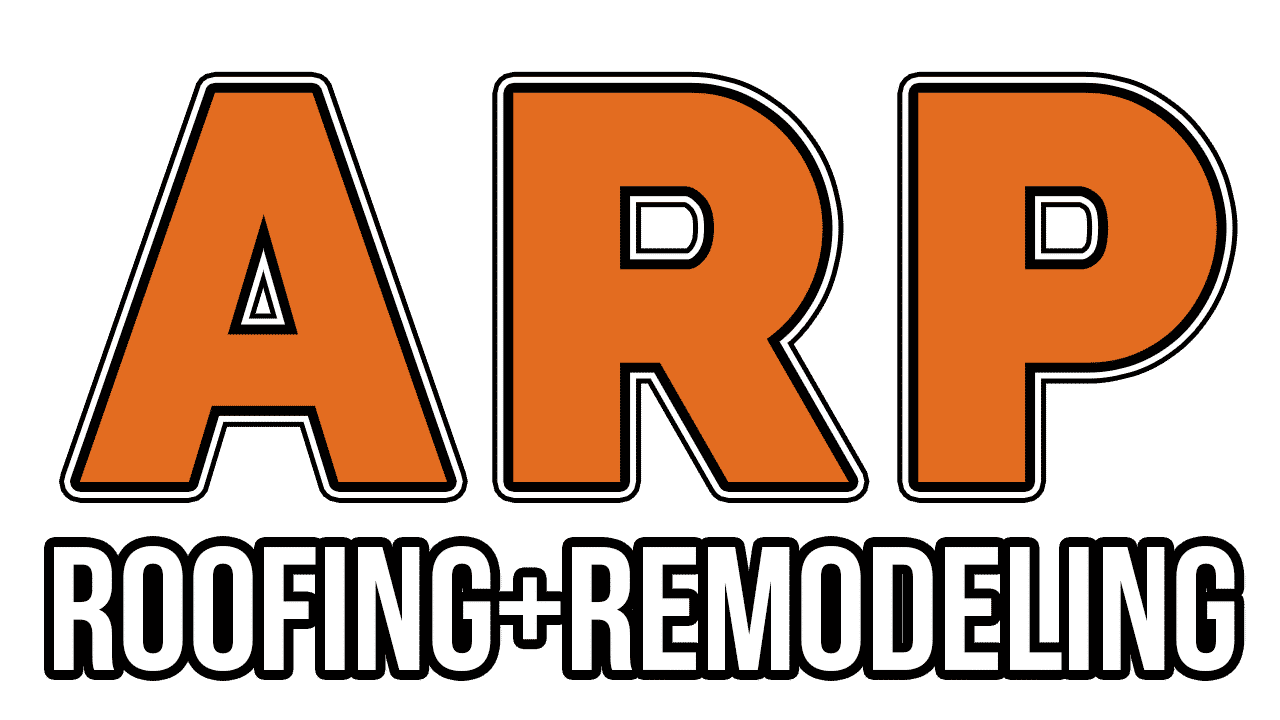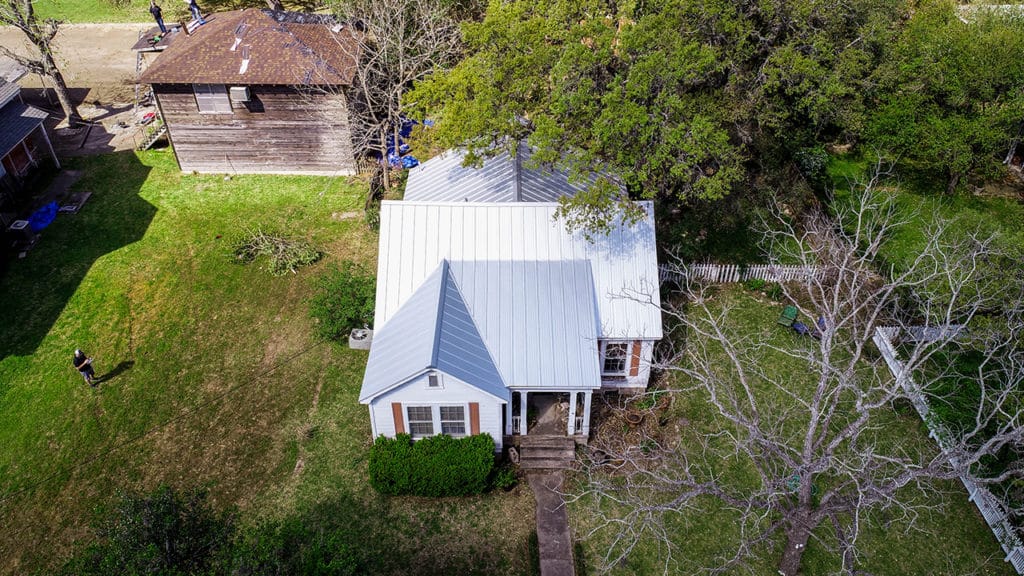Which Roofing Material is Cheaper: Metal or Asphalt?
When it comes to roofing, many homeowners wonder which is cheaper, metal or asphalt roof. The quick answer? Asphalt shingles cost less upfront but have a shorter lifespan compared to metal roofs. Here are the key points:
- Asphalt shingles: Cheaper initial cost, typically around 20 years of lifespan.
- Metal roofs: Higher initial cost, but can last 40-80 years, offering long-term savings.
Choosing between metal and asphalt shingles depends on various factors, including upfront costs, durability, and long-term value.
At ARP Roofing & Remodeling, we understand that roofing is a significant investment. As the co-founder, I bring years of experience in helping homeowners choose the best roofing solution based on their budget and needs.
Cost Breakdown: Metal vs. Asphalt Roofs
When deciding which is cheaper metal or asphalt roof, break down the costs. This includes material costs, labor costs, and additional expenses like removal and disposal fees.
Material Costs
Asphalt Shingles: The most common roofing material, asphalt shingles, are popular due to their affordability. The cost per square foot ranges from $1 to $10. Basic asphalt shingles are at the lower end, while premium options like clay shingles can be more expensive.
Metal Roofing: Metal roofing materials vary significantly in price. Steel, the most affordable, costs between $3 to $15 per square foot. Premium metals like copper can cost up to $38 per square foot. The longevity of metal roofs often justifies the higher initial cost, as they can last 40-70 years or more.
Labor Costs
Asphalt Shingles: Easier to install, leading to lower labor costs. Labor typically accounts for about 60% of the total cost. For a standard roof, expect to pay between $1 and $2 per square foot in labor.
Metal Roofing: Requires specialized skills, making labor more expensive. Labor costs for metal roofs range from $2 to $14 per square foot. The complexity of the installation, roof shape, and slope can drive these costs higher.
Additional Costs
Removal of Old Materials: Both types of roofing require the removal of old materials, which can add to the cost. Disposal fees vary but generally add a few hundred dollars to the total.
Accessories and Permits: Don’t forget about the extras. This includes accessories like flashing and ridge vents, which can add to the overall cost. Permits may also be required, depending on local regulations, adding another layer of expense.
Installation Complexity: Oddly shaped roofs or those with steep slopes can increase labor costs for both asphalt and metal roofs. Metal roofs, in particular, can be more challenging to install on complex roof structures.
Roof Size
The larger the roof, the more materials you’ll need, which drives up costs. Larger roofs also take more time to install, increasing labor costs.
Understanding these cost factors can help you make an informed decision when choosing between metal and asphalt roofing. Up next, we’ll dive into the pros and cons of metal roofs to see if they offer the value you’re looking for.
Pros and Cons of Metal Roofs
When considering a metal roof, it’s crucial to weigh its advantages and disadvantages. Here, we break down the key aspects:
Durability and Longevity
Durability: Metal roofs are incredibly durable. They can withstand high winds, heavy rain, snow, and even hail. Unlike asphalt shingles, they don’t crack or warp easily.
Lifespan: Metal roofs typically last longer than any other type of roof. While asphalt shingles may last 20-30 years, a metal roof can last 40-70 years or more. Some metals, like copper, can last over a century.
Weather Resistance: Metal roofs are resistant to severe weather conditions. They don’t absorb water, which reduces the risk of rot and mold.
Warranties: Many metal roofs come with warranties ranging from 20 to 50 years, providing long-term peace of mind.
Energy Efficiency
Heat Reflection: One of the standout features of metal roofing is its ability to reflect solar heat. This can reduce cooling costs by up to 40%, making your home more energy-efficient.
Insulation: Metal roofs can be paired with high-quality insulation materials, further enhancing energy efficiency.
Utility Savings: The energy savings from a metal roof can be significant. According to the Environmental Protection Agency, metal roofs can help lower your energy bills, especially during hot summer months.
Maintenance and Repairs
Low Maintenance: Metal roofs require minimal upkeep. They resist rust, corrosion, and fading. Periodic inspections and clearing debris are usually all that’s needed.
Repairs: While metal roofs are low-maintenance, they can be more challenging and costly to repair if damage occurs. Fasteners and seams need to be checked periodically to prevent leaks.
Denting: Despite common beliefs, hail rarely dents metal roofs. They are designed to handle impact efficiently.
Noise and Aesthetics
Rain Noise: One common concern is noise from rain. However, with proper insulation, metal roofs can be as quiet as other roofing materials.
Curb Appeal: Metal roofs offer a sleek, modern look that can significantly improve your home’s curb appeal. They come in various styles and colors, allowing for customization to match any architectural design.
Patina: Over time, some metal roofs, like copper, develop a patina. This can add a unique, attractive appearance to your home, but it’s a matter of personal preference.
Next, let’s explore the pros and cons of asphalt shingles to see how they compare.
Pros and Cons of Asphalt Shingles
Asphalt shingles are a popular choice for many homeowners due to their affordability and ease of installation. Let’s take a closer look at the pros and cons of this roofing material.
Affordability and Availability
Initial Cost: One of the biggest advantages of asphalt shingles is their low upfront cost. According to Remodeling Magazine’s 2023 Cost vs. Value Report, an asphalt shingle roof replacement averages between $7,000 and $10,000, making it a budget-friendly option for many homeowners.
Widespread Use: Asphalt shingles are the most common roofing material in the U.S. This means they are widely available and easy to find, regardless of where you live.
Neighborhood Aesthetics: Many neighborhoods have a consistent look, and asphalt shingles can help your home blend in. If most houses in your area have asphalt shingles, opting for the same material can maintain community aesthetics.
Ease of Installation
Installation Speed: Asphalt shingles are relatively quick to install. A professional roofing contractor can usually complete the job in 1 to 3 days, depending on the size and complexity of the roof.
Labor Costs: Because asphalt shingles are easy to work with, labor costs are typically lower compared to metal roofs. This helps keep the overall project cost down.
DIY Potential: For handy homeowners, installing asphalt shingles can be a doable DIY project. While we recommend hiring a professional for the best results, the relative simplicity of shingle installation makes it more accessible for DIY enthusiasts.
Maintenance and Repairs
Repair Costs: Repairs for asphalt shingles are generally straightforward and inexpensive. If a few shingles are damaged, they can be replaced without needing to redo the entire roof.
Common Issues: Asphalt shingles can suffer from issues like curling, cracking, and algae growth, especially in areas with extreme weather conditions. Regular inspections and maintenance can help mitigate these problems.
Lifespan: On average, asphalt shingles last about 20 to 25 years. While this is shorter than the lifespan of metal roofs, it’s still a reasonable duration given their lower initial cost.
Lifespan and Durability
Average Lifespan: As mentioned, asphalt shingles typically last 20 to 25 years. This lifespan can vary based on the quality of the shingles and the local climate.
Weather Resistance: Asphalt shingles are designed to withstand a variety of weather conditions, but they are more prone to damage from high winds and hail compared to metal roofs.
Warranties: Most asphalt shingles come with warranties ranging from 15 to 30 years. While these warranties are shorter than those for metal roofs, they still provide significant coverage for homeowners.
In summary, asphalt shingles offer a cost-effective and readily available roofing option. They are easy to install and maintain, making them a practical choice for many homeowners. However, their shorter lifespan and susceptibility to weather damage are important considerations.
Next, let’s address the primary question: which is cheaper metal or asphalt roof? We’ll break down the upfront costs and long-term savings to help you make an informed decision.
Which is Cheaper: Metal or Asphalt Roof?
Upfront Costs
When deciding on which is cheaper: metal or asphalt roof, the initial investment is a major consideration.
Material Costs: Asphalt shingles are the clear winner here. According to Remodeling Magazine, the cost of asphalt shingles ranges between $4.25 and $13 per square foot. Metal roofing, on the other hand, can cost between $4 and $30 per square foot depending on the type of metal.
Installation Costs: Asphalt shingles are also less expensive to install. Labor costs typically range from $2 to $3 per square foot for shingles, while metal roofs can range from $3 to $5 per square foot. This is because installing metal roofs is more complex and time-consuming.
Long-Term Savings
While asphalt shingles are cheaper upfront, metal roofs may offer better long-term savings.
Durability: Metal roofs can last between 40 and 70 years with minimal maintenance. Some types, like copper, can last over a century. Asphalt shingles, however, generally last 20 to 25 years. This means you might replace an asphalt roof two or three times before needing to replace a metal roof once.
Maintenance Costs: Metal roofs require less maintenance and fewer repairs over their lifespan compared to asphalt shingles. Asphalt shingles can suffer from issues like curling, cracking, and algae growth, which can add to maintenance costs.
Energy Efficiency: Metal roofs reflect heat, which can reduce cooling costs by up to 40%. Asphalt shingles absorb heat, potentially increasing your energy bills. Over time, the energy savings from a metal roof can offset some of the higher initial costs.
Case Study: 30′ x 30′ Garage Roof
Let’s compare the costs for a 30′ x 30′ (900 square feet) garage roof.
Asphalt Shingles:
– Material Costs: $3,825 to $11,700
– Installation Costs: $1,800 to $2,700
– Total Upfront Cost: $5,625 to $14,400
Metal Roof:
– Material Costs: $3,600 to $27,000
– Installation Costs: $2,700 to $4,500
– Total Upfront Cost: $6,300 to $31,500
While asphalt shingles are cheaper initially, the long-term savings from a metal roof might make it a more cost-effective choice over time.
In the next section, we’ll answer some frequently asked questions about roofing costs to help you make an informed decision.
Frequently Asked Questions about Roofing Costs
Is it cheaper to put a metal roof or shingles?
When considering which is cheaper: metal or asphalt roof, asphalt shingles are generally less expensive upfront. According to Remodeling Magazine, the cost of asphalt shingles ranges between $4.25 and $13 per square foot, while metal roofing can range from $4 to $30 per square foot.
Installation costs also favor shingles, with labor averaging $2 to $3 per square foot compared to $3 to $5 for metal roofs. However, metal roofs offer long-term savings in terms of durability, maintenance, and energy efficiency.
What is the most affordable type of roof?
The most affordable type of roof is typically asphalt shingles. They are the most common roofing material due to their lower cost and ease of installation. Asphalt shingles are widely available and can be installed quickly, making them a budget-friendly choice for many homeowners.
What are the disadvantages of a metal roof?
While metal roofs have many benefits, they also come with some downsides:
Higher Initial Cost: Metal roofs are more expensive upfront for both materials and installation.
Appearance: Some homeowners may not prefer the look of metal roofs, especially if they want to match the neighborhood aesthetic.
Potential for Rust and Denting: Low-quality metals can rust or dent, although most high-quality metal roofs come with protective coatings.
Noise: Metal roofs can be noisier during rain or hail, although this can be mitigated with proper insulation.
Understanding these disadvantages can help you decide if a metal roof is the right investment for your home.
In the next section, we’ll summarize the key points and help you make a final decision on your roofing choice.
Conclusion
When deciding between metal and asphalt roofing, weigh both the upfront costs and long-term benefits. While asphalt shingles are generally more affordable initially, metal roofs offer greater durability and energy efficiency, which can save you money over time.
Asphalt shingles:
– Lower initial cost: Typically ranging from $1 to $2 per square foot.
– Ease of installation: Faster to install, leading to lower labor costs.
– Shorter lifespan: Generally lasts 15-30 years, meaning you might need to replace it sooner.
– Higher maintenance: More frequent repairs and replacements are needed.
Metal roofs:
– Higher initial cost: Ranges from $1 to $25 per square foot, depending on the material.
– Longer lifespan: Can last 40-100 years, reducing the need for replacements.
– Energy efficiency: Reflects heat, leading to lower utility bills.
– Lower maintenance: Requires fewer repairs over its lifetime.
The choice between metal and asphalt roofing depends on your specific needs, budget, and long-term plans for your home. If you aim for lower upfront costs and quicker installation, asphalt shingles might be the way to go. However, if you prefer a more durable, energy-efficient option that could save you money in the long run, a metal roof is worth considering.
At ARP Roofing & Remodeling, we specialize in helping homeowners make informed decisions about their roofing needs. Whether you’re leaning towards asphalt shingles or a metal roof, our team is here to guide you through the process, ensuring you get the best value for your investment.
Ready to make your choice? Contact us today for a consultation and let us help you find the perfect roofing solution for your home.




